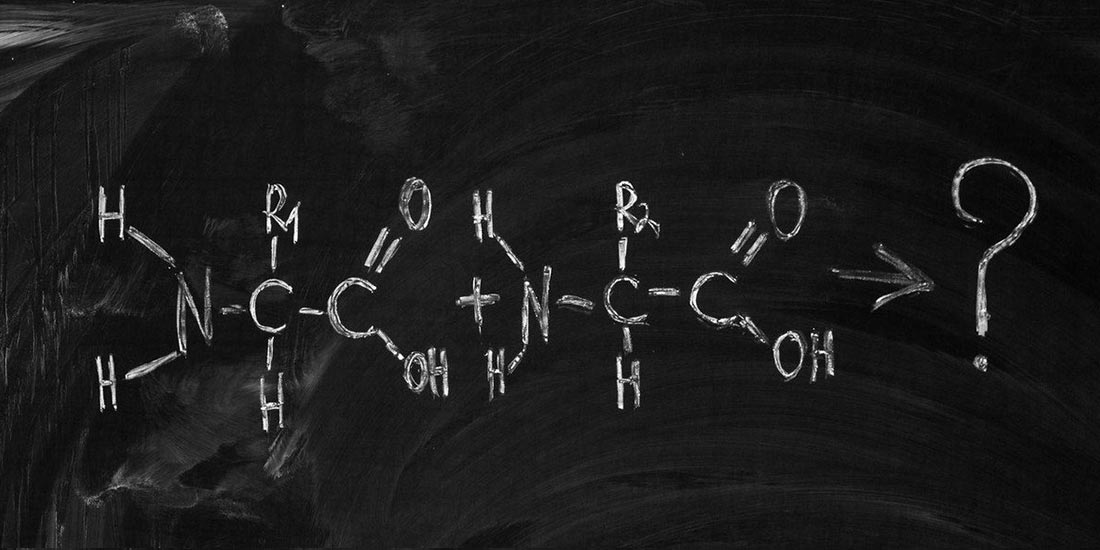

Essential amino acids – histidine, isoleucine, leucine, lysine, methionine, phenylalanine, tryptophan, threonine and valine – are required from the diet.
The term, ‘Essential’, comes from a point of reference of whether there are enough amino acids for the body’s needs. So, if the body is in need of particular amino acids faster than the body is capable of converting or producing, then that amino acid will therefore become ‘Essential’.
‘Complete’ proteins are referred to as such because they contain all nine within adequate proportions for use in the body. This mostly includes animal sources, however, if vegetarian sources are combined well, it is possible to consume adequate amounts of each.
Following on from the above, there are also ‘Conditionally Essential’ amino acids, however, this is a topic for another article, as there is discussion over the situations that create an essentiality and so forth.
So, let’s take a look at the amino acids that are deemed, ‘Essential’:
Histidine
Required to make histamine in the body, which is crucial for immune function, digestion, and also acts as a neurotransmitter (brain chemical messenger). Histamine also play a role in sexual arousal, the sleep and wake cycle, and proper formation of the myelin sheath, which is a vital structure that acts as ‘insulation’ within the nervous system.
Isoleucine
Leucine – Another BCAA, vital for determining muscle synthesis, growth and repair. Leucine also influences blood sugar level control, wound healing and growth hormone.
Lysine – Needed for protein synthesis, collagen and elastin production, and immunity, Lysine can be easily deficiency in a vegan diet. Careful balancing of Lysine content in food is crucial for Vegans to be aware of. It is also needed for immune function, energy production, enzymes and hormonal production. It is also known to help reduce blood pressure.
Methionine – Crucial for methylation cycles, methionine helps with metabolic and detoxification cycles. If there is insufficient methionine, so many biochemical pathways can suffer that relate to liver processing, mood and neurotransmitters, behaviours, digestion, immune function, etc…
Phenylalanine
Required for Tyrosine, Dopamine, Epinephrine and Norepinephrine production, so this all relates heavily to mood and behaviour. These chemical messengers help to regular reward and motivation pathways, addiction, focus and learning, just to name a few. ADHD, depression or addiction can often relate back to an imbalance of these messengers.
Threonine
Needed for collagen and elastin production, threonine therefore plays a big role in structure – bones, muscles, tendons, joints, ligaments, connective tissues, gut health, etc… It is also needed for fat metabolism and immune function.
Tryptophan
Converted to serotonin and melatonin, tryptophan is a big player when it comes to mood, appetite regulation and sleep. Depression can be caused by low serotonin, as well as sweet cravings, overeating, anger, crying, etc… Sleep disturbances can also arise, as melatonin is important for sleep cycles – falling and staying asleep. If conversion is not adequate, or tryptophan levels are low so many may struggle to fall or stay asleep. This can be due to low dietary intake, or as blood sugar and insulin levels influence it crossing over in to the brain, carbohydrate intake influences it a lot. Exercise fatigue can also occur due to higher blood levels of tryptophan, and then serotonin, as BCAAs drop during exercise, as usually compete with Tryptophan, this now allows more tryptophan to cross over in to the brain, and this can be responsible for exercise fatigue. ‘Feasting fatigue’ can also be explained by this - after eating too many carbohydrates and sugar, we generally get drowsy and sleepy. This is often due to the same reason.
Valine – The third BCAA, valine is important for muscle growth, repair and energy production. BCAAs in the presence of all other essential amino acids, are very important for muscle repair, protection during stress (exercise), muscle building, energy production during exercise, and can act as a basic ergogenic aid, to increase performance.
So, in summary, amino acids all play vital, individual roles. Some amino acids, although labelled ‘non-essential’, or ‘conditionally’ essential can actually become essential in times of stress or demand higher than possible for the body to produce.
Eating a balanced, varied diet will ensure consumption of essential amino acids.










